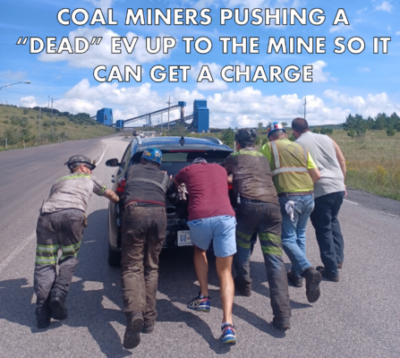Electric Vehicles and COVID cures have a lot in common. If the government endorses them, there is a long list of bad things they are not telling you or denying when anyone dares to tell the truth.
We’ve got hundreds of articles on Electric Vehicles and the Net Zero lie, and yet people continue to accept the plan as deployed by the State. Eliminate affordable options, replace them with incompatible solutions, and make using them more challenging (or impossible).
But you don’t have to believe me. Just look to states like California or, in today’s example, Australia. Queensland is proposing demand management schemes monitored and implemented by electricity providers.
Translation: when what we forced you to purchase stresses out the infrastructure that we did not first replace (or upgrade), we will turn your EV charger off to take the pressure off the system. Assuming you can even afford to charge it.
Federal Nationals MP Keith Pitt, himself an electrical engineer, says a proposal to use demand management on EV charging reveals that operators have little confidence the grid can handle the uptake of electric cars expected in the push towards net zero.
“EV take-up could increase peak demand by as much as 60 percent right across the National Electricity Market,” Mr. Pitt told The Epoch Times.
“That would mean you need a 60 percent increase in generating electricity capacity, transmission, and distribution. So that’s every substation, every cable, every supply point, every house—it will cost an absolute fortune.”
This entire exercise is quite literally the government telling you to jump into the deep end of a pool in which there is no water and then demanding the water that’s there. They want to encourage more EV uptake by redirecting revenue (needed to rebuild the grid, perhaps?) toward rebates for cars people still can’t afford and won’t be able to charge.
Wouldn’t it be ironic if the same people pushing these ass-backward plans were also looking for ways to end the individual right to travel and personal transportation?
Oh, wait. They are.
And they’re not even better for the environment.
